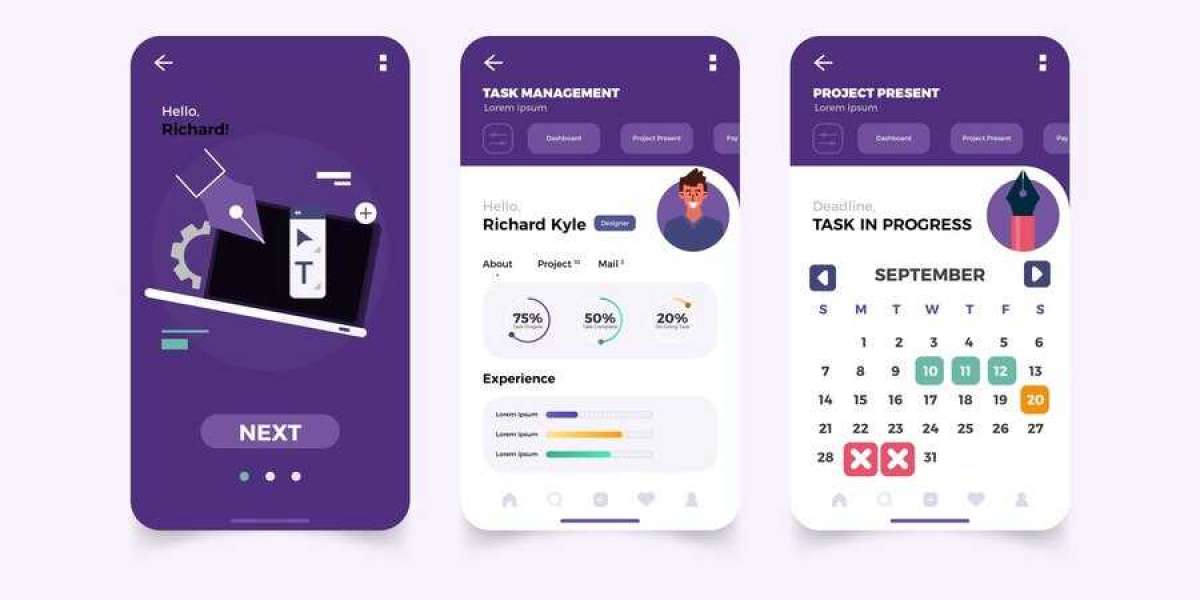In today’s fast-paced world, where technology drives most aspects of our lives, the event management industry has witnessed a remarkable shift toward digital solutions. Event organizers, planners, and businesses are increasingly adopting event management apps to streamline planning, enhance attendee engagement, and provide a seamless experience for all stakeholders. The demand for advanced tools to manage logistics, registrations, schedules, and communications is growing from conferences to weddings and corporate events to festivals. Event management app development has become the backbone of modern event planning, offering solutions that save time, reduce errors, and create memorable experiences.
Why Event Management Apps Matter
Planning and managing events can be daunting, especially when dealing with multiple moving parts. Traditional methods often involve extensive paperwork, phone calls, emails, and manual processes that can lead to miscommunication, confusion, and last-minute errors. This is where event management apps come into play.
These apps help automate and simplify various event planning processes, such as attendee registration, ticketing, venue management, scheduling, communication, and feedback collection. As a result, event planners can focus more on the creative and strategic aspects of their events, leaving the administrative and logistical tasks to the app. Additionally, attendees benefit from easy access to event details, personalized schedules, and instant updates, making the overall experience smoother and more enjoyable.
Key Features of Event Management Apps
When developing an event management app, it's crucial to integrate features that address the needs of both event organizers and attendees. The following are some essential features that an event management app should have:
- Event Registration and Ticketing
One of the primary functions of an event management app is handling registrations and ticket sales. The app should allow attendees to sign up for events, select sessions or activities, and purchase tickets online. This feature simplifies the entire process by automating ticketing, eliminating manual entry errors, and reducing the need for paper-based tickets. Organizers can also track the number of registrations in real-time. - Agenda and Schedule Management
Event apps allow organizers to create and manage event agendas, session schedules, and speaker line-ups. Attendees can view detailed schedules and select sessions they wish to attend, ensuring they don’t miss out on important activities. The app can send notifications and reminders to keep everyone on track. - Networking Opportunities
Networking is crucial to any event, especially conferences and trade shows. Event management apps often include features that facilitate networking by allowing attendees to connect based on shared interests or professional backgrounds. This can be done through in-app messaging, attendee profiles, or matchmaking algorithms suggesting people to meet. - Real-time Communication
Effective communication is vital for ensuring a smooth event experience. Event management apps often feature chat rooms, push notifications, and live updates to keep attendees informed of any changes in the schedule, venue, or important announcements. Organizers can use these features to alert attendees about speaker changes, session delays, or location updates. - Interactive Maps and Navigation
For large events, venues can become confusing for attendees to navigate. Interactive maps within the app can help guide participants to various areas, such as session rooms, dining areas, restrooms, and exhibitor booths. This feature enhances the attendee experience by reducing confusion and making it easier for participants to find what they want. - Feedback and Surveys
Collecting feedback from attendees is crucial for evaluating an event's success and identifying areas for improvement. Event management apps often include features for sending surveys and gathering attendee opinions, which allows organizers to make data-driven decisions for future events. - Live Streaming and Virtual Events
With the rise of hybrid and virtual events, live-streaming capabilities are becoming increasingly important. Event management apps can integrate live streaming features to broadcast keynotes, panel discussions, and sessions to remote attendees. This ensures that the event reaches a larger audience, regardless of geographical location. - Payment Integration
Payment processing features allow attendees to make secure payments for event tickets, merchandise, and other add-ons. Integrating payment gateways like PayPal, Stripe, or credit card processing ensures a smooth transaction experience.
The Benefits of Event Management App Development
Developing a robust event management app offers several advantages to both organizers and attendees. Let’s explore some of these benefits in detail:
1. Enhanced Efficiency and Time-Saving
Event planning involves managing numerous tasks simultaneously, including registrations, ticketing, scheduling, and logistics. Event management apps centralize these tasks into one platform, making coordinating and tracking progress easier. This eliminates the need for spreadsheets, paper documents, and multiple communication channels, saving time and reducing the risk of errors.
2. Improved Attendee Experience
Event apps provide a seamless experience for attendees by giving them instant access to event details, schedules, and personalized agendas. With interactive maps, real-time updates, and networking features, attendees can navigate the event effortlessly and make the most of their time. The app also acts as a one-stop hub for all event-related information, making it easier for participants to stay informed and engaged.
3. Better Data Management and Analytics
Event management apps provide organizers with valuable data that can help improve future events. Through analytics, organizers can track attendee behavior, measure engagement, and collect feedback on various aspects of the event. This data can be used to optimize event content, marketing strategies, and overall planning.
4. Cost-Effective Solution
Organizing events can be expensive, especially when considering venue rentals, marketing efforts, and staff costs. By digitizing many aspects of the event, an app reduces the need for paper materials, printed schedules, and on-site staff to manage registration. The ability to streamline processes also means less time is spent on manual tasks, further reducing operational costs.
5. Increased Engagement and Branding Opportunities
Event management apps offer a unique opportunity to increase engagement and brand recognition. Sponsors can advertise their products through push notifications, while exhibitors can showcase their offerings. Additionally, the app’s branding can reflect the event’s theme or the organizer’s logo, providing another channel for marketing.
The Future of Event Management: Web3 and Blockchain Integration
As technology evolves, event management apps are also adapting to new trends. One such trend is the integration of Web3 technologies. Web3 is the next internet generation, focusing on decentralization and blockchain. Web3 event apps offer numerous advantages, including secure ticketing, NFT-based access, and blockchain-enabled loyalty programs. These innovations can help combat issues such as ticket fraud, increase transparency, and offer new revenue streams for organizers.
For businesses interested in taking their events to the next level, partnering with a Web3 event app development company can provide cutting-edge solutions to meet the demands of modern attendees. By leveraging blockchain technology, Web3 event apps can offer secure, transparent transactions while enabling a decentralized and more personalized event experience.
Conclusion
Event management app development has transformed how events are planned and executed, offering solutions that improve efficiency, enhance attendee experiences, and provide valuable insights through data analytics. With features such as real-time communication, networking, interactive maps, and live streaming, these apps help organizers and attendees easily navigate complex events.
As we look to the future, the rise of Web3 technologies promises even greater innovation in the event management space. Integrating blockchain and decentralization into event apps will pave the way for more secure, transparent, and engaging event experiences.
Whether you are organizing a small business conference or a large-scale international festival, investing in an event management app can make a significant difference. By embracing the power of technology, event planners can focus on what truly matters – creating memorable experiences for their audience.






